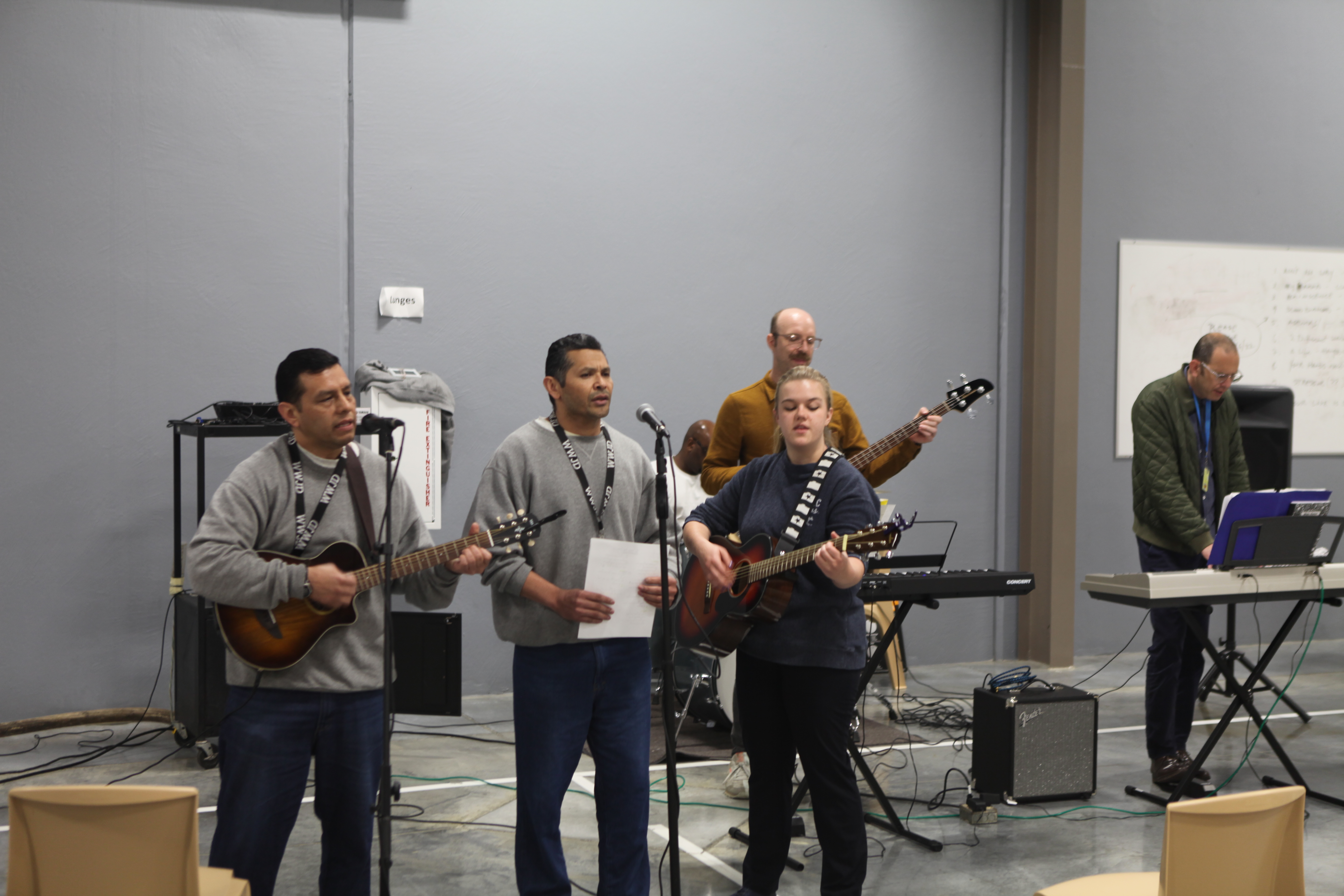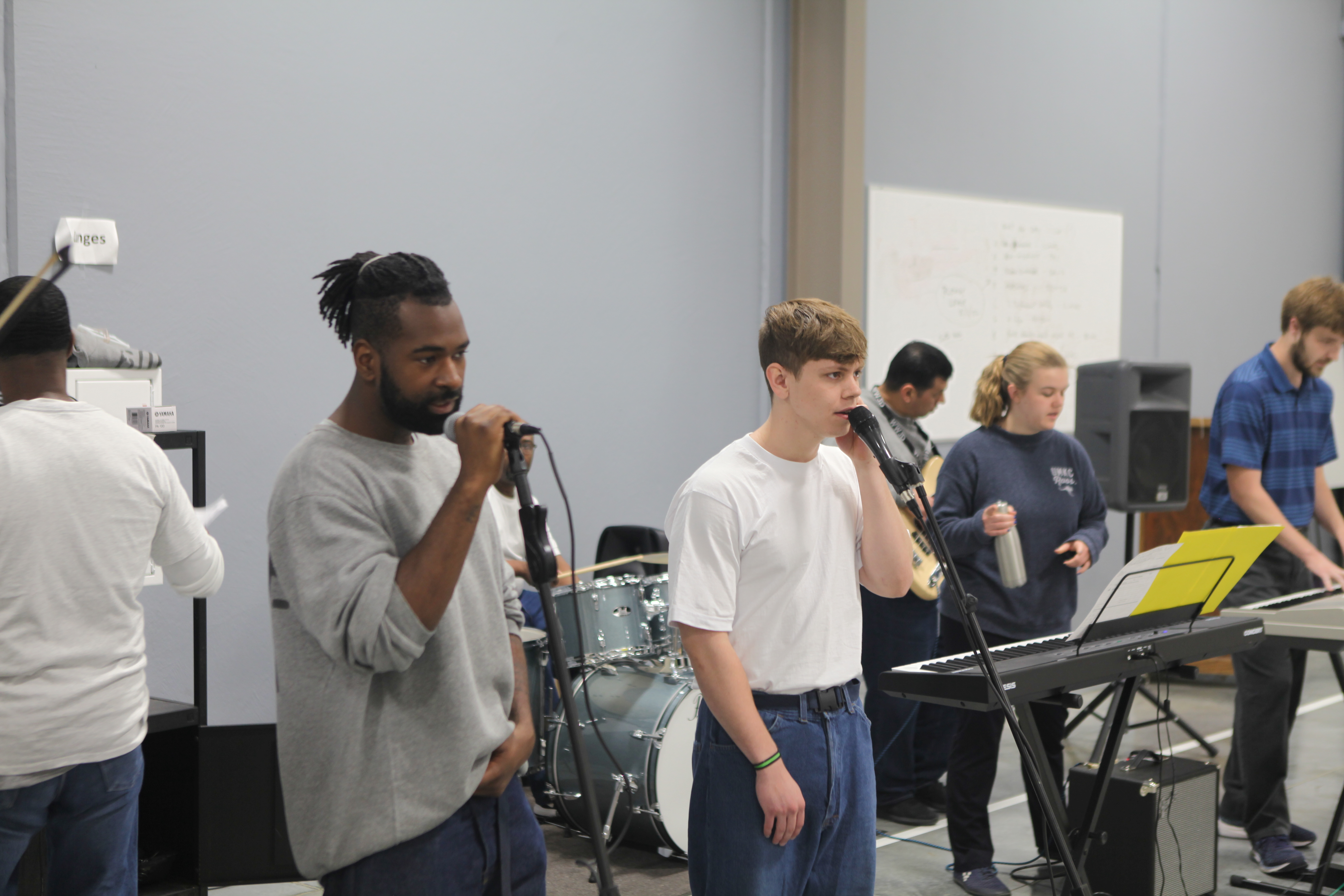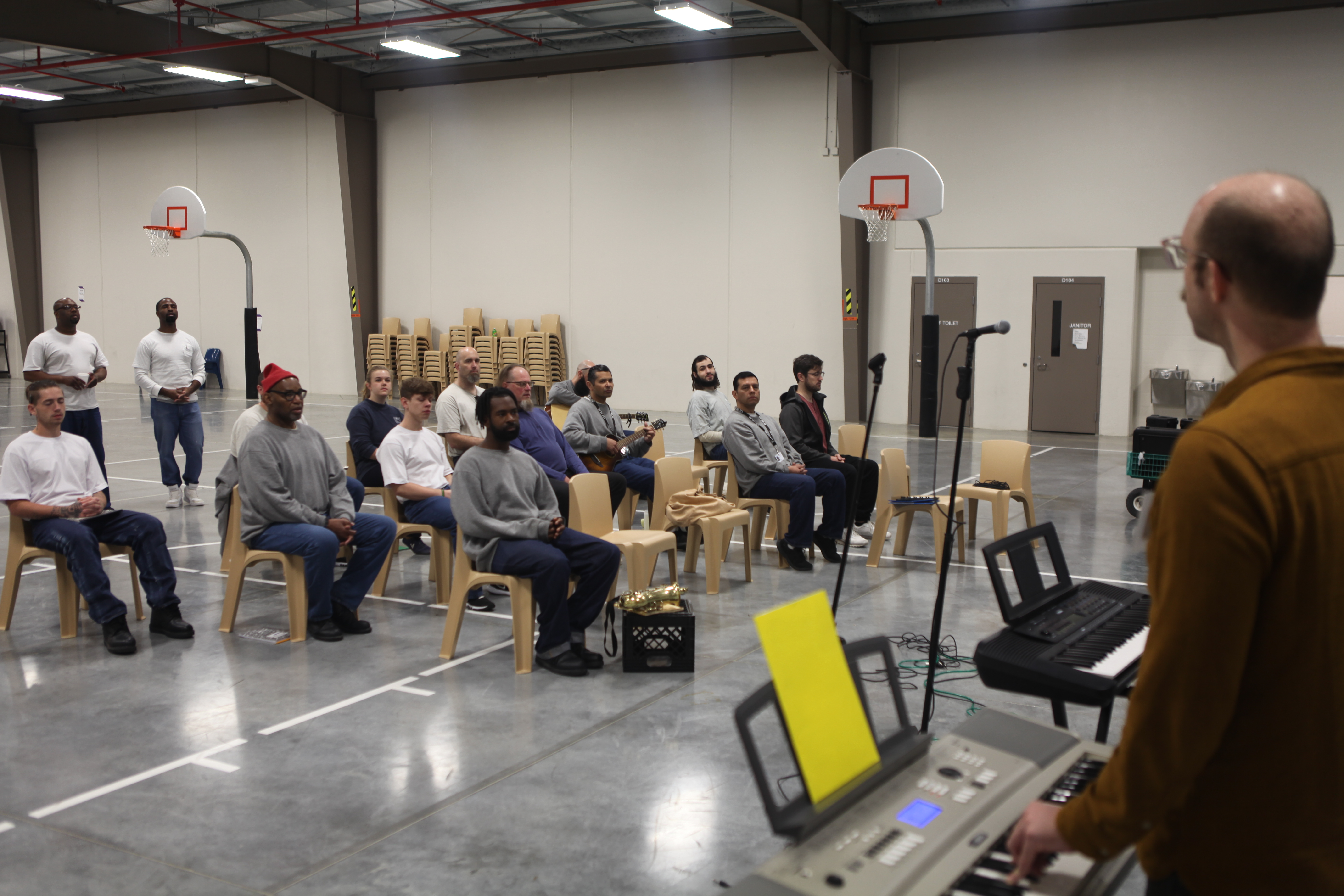Faculty members Yotam Haber and Owen Belcher routinely step into a world apart from academic music, yet one that vividly demonstrates the universality of the art.
The pair formed a UMKC chapter of Musicambia, a New York-based nonprofit that works with incarcerated prisoners on composing and performing music. Twice a month, they cross the threshold of the Lansing Correctional Facility in Lansing, Kansas —about a 40-minute drive from campus —to make music with the men incarcerated there.
“Musicambia has been on my radar since about 2017. I’ve been wanting to work with them since my previous position (at the University of New Orleans),” Haber said. When he came to UMKC in Fall 2019, he met Belcher, another new member of the faculty who had a similar interest. Haber suggested they connect with Musicambia to launch the local program.
“It was thanks to my collaboration with Owen and a generous gift from the Kauffman Foundation that allowed us to bring Musicambia here and help us launch our program at Lansing,” Haber said.

Musicambia began as a branch of Carnegie Hall’s Musical Connections Program at Sing Sing Correctional Facility in 2013, and then incorporated as a separate non-profit in 2014.
The national Musicambia organization contacted the wardens at several prisons in the Kansas City region. “Lansing was both the closest and the most willing to work with us,” Belcher recalled.
Following the established Musicambia roadmap, the relationship began with the organization’s Founder/ Artistic Director Nathan Schram and Program.
Director Elliot Cole leading an intensive five-day songwriting session at Lansing along with Haber, Belcher and three of their students. Since then, Haber, Belcher and the students have been returning to Lansing twice a month to continue the music program.
“I was pretty nervous that first day,” Belcher recalled. “But due to the intense nature of the five-day schedule, you get over the nerves and initial shyness pretty quickly. I'd say it took about an hour or two to begin developing a sense of mutual trust. It's a lot to ask of a group of men to sing in front of each other and in front of strangers. It's a vulnerable thing to do, and the prison environment is not one that traditionally rewards vulnerability.”
The program involves creating music, as well as performing it.

"In our work at Lansing, we guide our participants in the process of creating, from the germination of a tiny musical kernal to a full concert. We are not playing music to the students; rather, we facilitate their own vision," Haber said. "It's deeply fulfilling to see this come into fruition. It's the reason I'm an educator, not just a composer."
As for the impact, "I don't want to speak for the participants, but I would hope that our program offers them an outlet to express themselves musically, a chance to work out their artistic ideas and develop their musical abilities," Belcher said. "Our program is designed to be collaborative. What this means in practice is that, although UMKC faculty and students often lead activities, we try to be more like musical partners rather than operating under a traditional teacher-student scenario. If we wind up giving advice or helping answer questions, that arises organically."
Belcher said his motivation stems naturally from his scholarship in music theory.
"My discipline stresses the need to become more inclusive and involve the community; this is also an
important goal for the university," he explained. "Incarcerated people are not just underserved —in many cases they aren't served at all."

Haber also pursues a deeper purpose.
"Being in prison is, in large part, not a rehabilitative or positive experience. Most of the incarcerated population will eventually be released, and from my experiences and conversations, they want to build better lives for themselves and their families," Haber said. "Making music together can be a deeply fulfilling, shared, positive experience. I hope that in some small way, this project helps their wellbeing, their sense of purpose and brings some joy."

